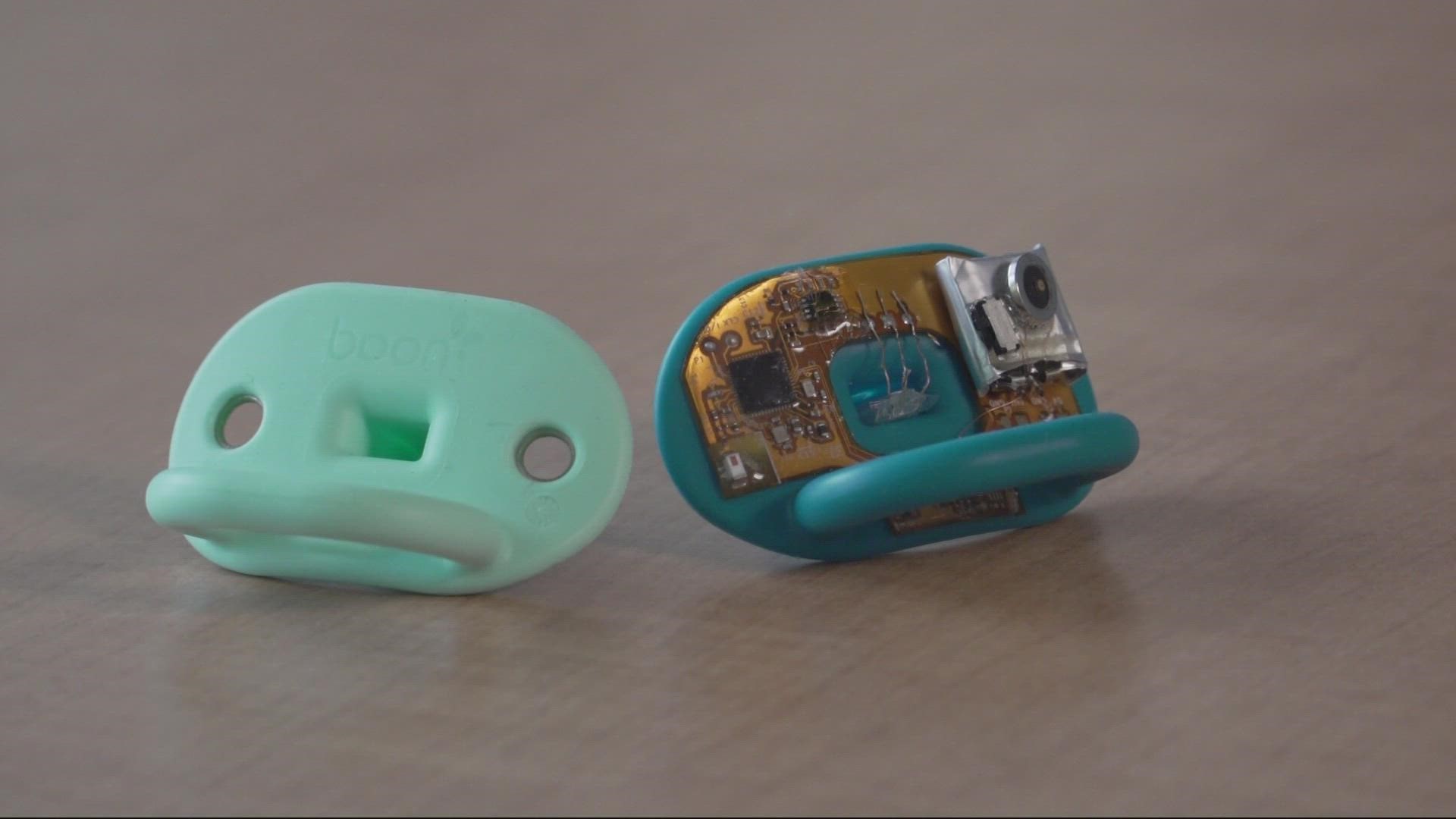VANCOUVER, Wash. — Engineering professors and their students at Washington State University Vancouver have helped create a high-tech pacifier that can monitor the health of babies in real time and in a less invasive way.
They call it a "smart pacifier," and other than some lightweight electronics, it's not any different than the ones babies put in their mouths all the time.
“So the smart pacifier was developed to automatically collect a saliva sample from babies and continuously monitors their ion level in real time,” said Dr. Jong-Hoon Kim, an associate professor of mechanical engineering at WSU Vancouver and a co-corresponding author on the study.
RELATED: Patients suffering from 'long COVID' may also be dealing with profound mental health issues
Kim explained that the smart pacifier monitors sodium and potassium ion levels of babies with health problems such as dehydration due to premature birth. It would be used in hospital newborn intensive care units (NICU), replacing invasive blood draws from babies.
Unlike with blood draws, most babies are actually soothed by pacifiers. And information collected in saliva on the pacifier can be transmitted by a wireless connection to medical professionals.
“So we believe our device has the ability to provide real-time health information for immediate feedback and treatment,” said Kim.
RELATED: Portland doctors 'first in the world' to apply new cancer therapy, resulting in tumor reduction
The professor and a handful of colleagues and students at WSUV have been working on this high-tech pacifier for a year and a half, teaming up with a few other universities in the U.S. and South Korea.
Clinical trials are still to come, but the academic group hopes the small medical device eventually replaces blood draws and a lot of the wires and electrodes typically required on NICU babies. Then it could be developed for use at home, so parents can do a variety of different health checks on their babies.
“Our next plan is we want to make this pacifier more recyclable and affordable so anybody can get it from the shelf of the market,” said Kim.
At this point it's not clear how long it will take to get the smart pacifier approved for use in hospitals, Kim acknowledged. But the professor said they'll keep working to make that happen as they continue their learning experience.

